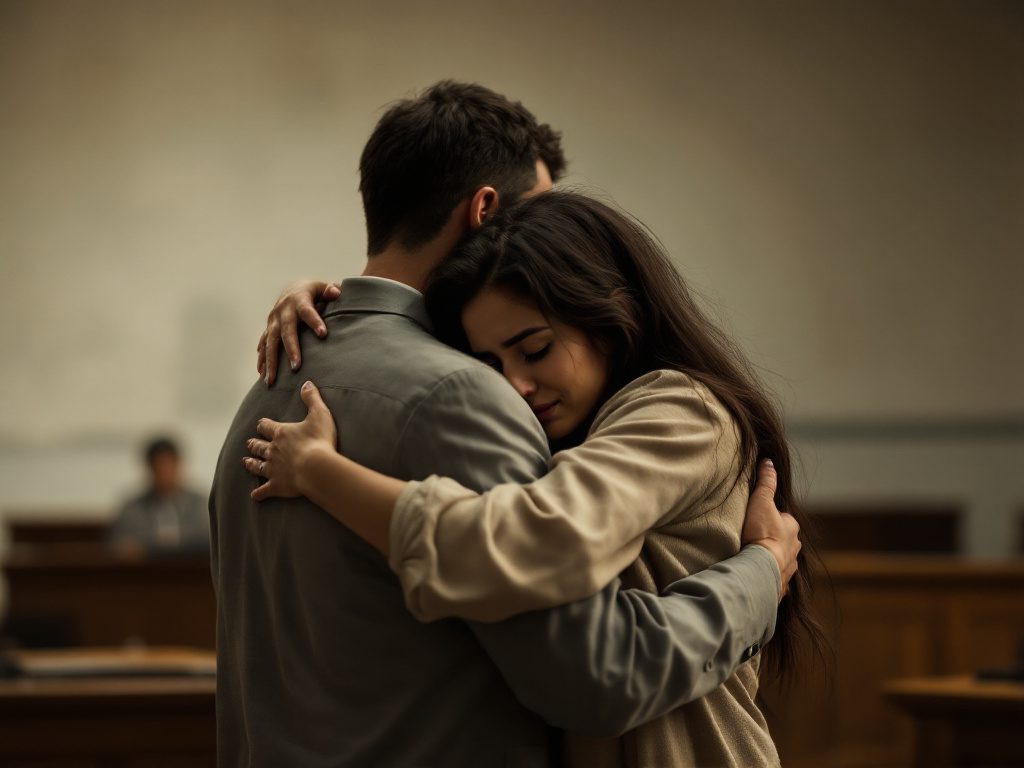When Forgiveness Defies Violence: A Courtroom Transformed
Few moments in American courtroom history match the raw vulnerability and defiant grace shown in the El Paso federal courthouse recently. The sentencing of Patrick Crusius, the convicted mass shooter who slaughtered 23 people at a Walmart in 2019, was expected to be a somber, conventional display of victims’ heartbreak and state-sanctioned retribution. Instead, a scene unfolded that cut through the noise of retribution and hate—a moment that forced even the most stone-faced observers to reconsider the boundaries of human empathy.
The moment Yolanda Tinajero stepped forward, leaning on her cane, a hush fell over the courtroom. She addressed Crusius, the man responsible not only for taking her brother Arturo Benavides’s life, but for inflicting lasting wounds—emotional and physical—on an entire community. Tinajero described a brother beloved for his kindness and the agony that now colored her every birthday, every ordinary day. She challenged Crusius to truly see her pain, and offered him forgiveness. Since the shooting, her own body has been marked by trauma, now dependent on a brace and cane. Still, she asked for the unimaginable: to embrace her brother’s killer so that he might feel the loss and love that hate could never extinguish.
The presiding judge, Sam Medrano, was visibly moved. After confirming that such a gesture might indeed bring Tinajero some comfort, he granted permission for the hug—an act almost unfathomable given the gravity of the crimes discussed. The courtroom, filled with sobbing families and seasoned law officials, watched as boundaries of customary justice momentarily dissolved in the face of radical compassion. CNN described the moment as one that “brought together the divided,” showing just how profoundly personal healing can upend the expected order of punishment and blame.
Compassion Versus Retribution: What Justice Can—And Can’t—Do
The El Paso massacre was, from its inception, an act not only of violence but of explicit hatred. Patrick Crusius drove 600 miles to target what he called “the Hispanic invasion of Texas,” a phrase chilling in its overt xenophobia. According to FBI data, hate crimes have reached unsettling highs in recent years, and research from the Southern Poverty Law Center outlines how rhetoric about immigrants and minorities has contributed to tangible, deadly consequences in American life. Many in El Paso were left not just to cope with the devastation of personal loss, but to absorb the fact that they were hunted for their identity.
In the courtroom, not all hearts turned to forgiveness. Francisco Rodriguez, the father of 15-year-old Javier Rodriguez—killed at the Walmart—stood up, voice shaking with anger and tears. “Look at me, I’m talking to you,” he demanded of Crusius, laying bare the raw wound that the criminal legal system can never fully heal. How does a parent move past the anniversary of a child’s murder—past the reality of visiting their grave on a birthday?
Such scenes expose a truth progressive thinkers have wrestled with for decades: justice that begins and ends with punishment often misses the deepest human needs. Harvard law professor Martha Minow, writing in “Between Vengeance and Forgiveness,” insists that true justice might reside somewhere between prosecution and reconciliation. She points to restorative practices, which ask, “What does healing really mean for those left behind?”
“If only he had shared one meal with us, he would have seen our warmth. Instead, he let hate blind him to our humanity.”
Melissa Tinajero, Yolanda’s daughter, echoed this philosophy, saying that her family “would have welcomed [Crusius] to share a meal, to change his thoughts about us.” The implication could not be clearer: radical empathy is not a surrender, but a counterattack against the mindset that leads to violence.
When Hate Fails and Community Prevails
Beyond that, the collective response from El Paso—often painted as a tight-knit, diverse city along the U.S.-Mexico border—speaks powerfully to the way communities fight hate with unity. The shooter, as one victim’s relative stated, aimed to “divide us, but instead he brought us closer together.” The paradox of the El Paso shooting is this: the attempt to shatter social fabric only intensified the threads that hold it together. According to a 2021 Pew Research Center poll, over 60% of Americans whose communities had experienced mass shootings reported tighter bonds and stronger networks afterward, evidence that shared grief can galvanize persistent resilience.
There are, undeniably, those for whom forgiveness is neither possible nor necessary—and that, too, is a legitimate response to horror. Yet the El Paso moment thrusts a question directly before all Americans: Will we let ideological divides calcify into perpetual cycles of fear, or will we dare to imagine—and model—ways to break them?
From the 2015 forgiveness shown by relatives of the Charleston Emanuel AME Church shooting victims to Yolanda Tinajero’s stunning act, American history contains rare but profound moments in which personal grace stands as a political act. Such gestures do not erase the wounds of systemic violence, but they illuminate a path where healing and resistance intertwine. As Dr. Martin Luther King Jr. wrote, “Hate cannot drive out hate: only love can do that.” The El Paso courtroom, echoing with grief and mercy, became one more site where that truth was tested—and, for a brief interval, proved possible.

